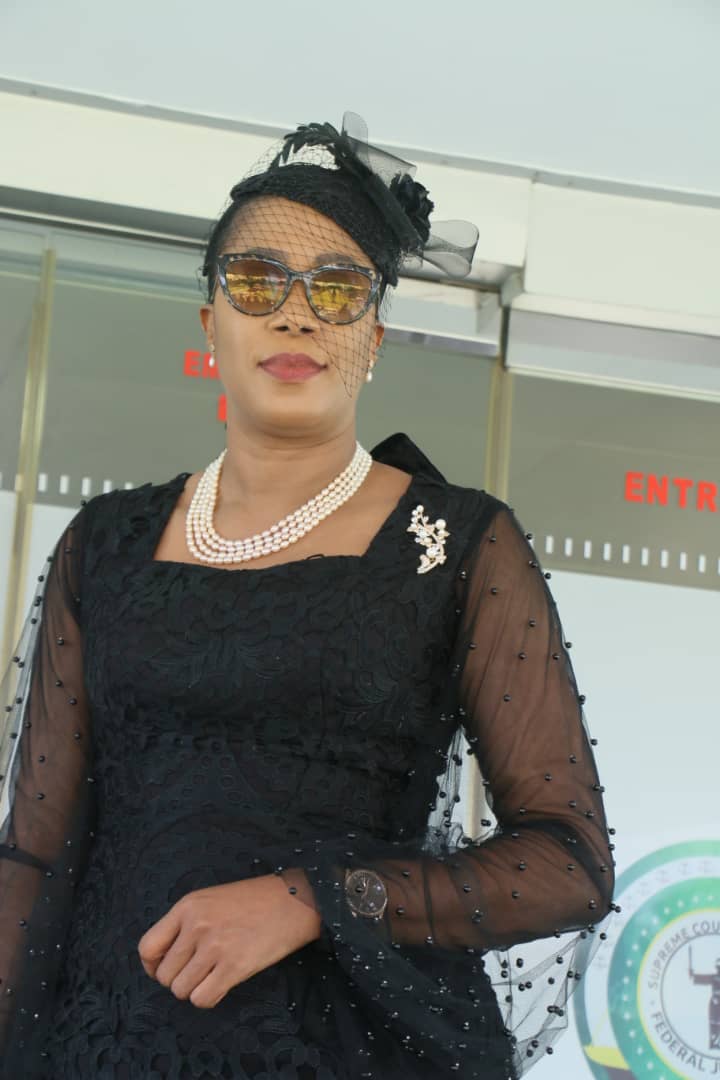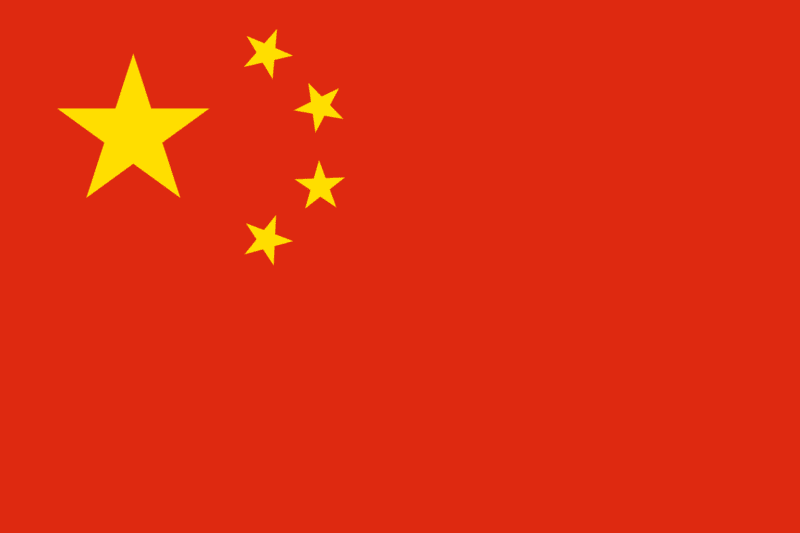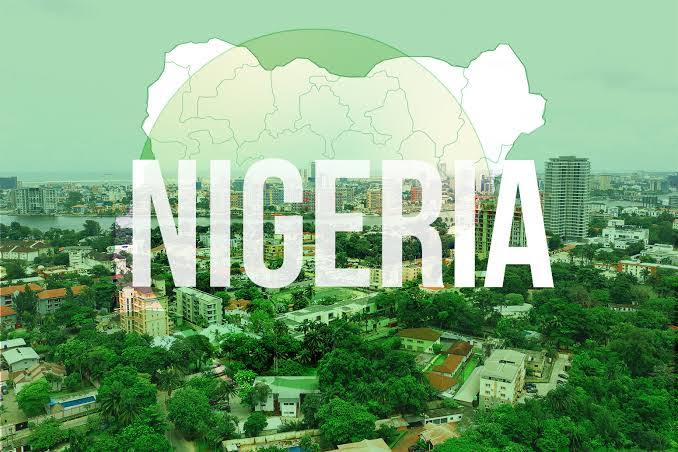Africa
Africa and China: Remove Africa and the System Collapses -By Florence C. Ozor
The new partnership model between Africa and China must evolve. If African engineers, policymakers, and technicians could train alongside Chinese experts—equipped not just with theories but trained in cutting-edge green technologies with hands-on skills to implement solar farms, smart grids, and energy-efficient infrastructure, becoming champions of decarbonization- what an impact China would have!

During a recent study tour, I stood atop China’s Great Wall and experienced an epiphany: what started as an academic exchange transformed into a realization that China’s past was built on stone, but its future—and Africa’s—will be written in cobalt, sunlight, and rare earth. The survival and prosperity of both nations depend on one another. Africa’s vast resource potential must connect with China’s advancements in technology and modernization, particularly in green energy security, for a shared future that benefits both parties.
China’s Lesson in Transformational Leadership
My journey through Beijing and Jinan revealed the remarkable achievements made possible by determined leadership. I witnessed the transformative power of China’s consistent leadership, resilience, and vision. I experienced the beauty of the country, its rich culture, and the people who embody China’s spirit. Their kindness is China’s truest diplomacy.

As Chairman Mao said, “不到长城非好汉” (He who has never been to the Great Wall is not a true man). I have indeed climbed the Great Wall as an individual and as a representative of Africa’s aspirations, and Chairman Mao is right!
The country works.
I observed the pride, discipline, and resilience that characterize China’s rise. From impressive renewable energy projects to smart urban planning, the leadership has shown that development must be people-centred to succeed. There is a culture of discipline, everyone carries themselves with quiet dignity. I did not see a beggar on the street or a homeless person. Additionally, there was a sense of security, with no police presence visible.
I was struck by their ability to turn challenges into opportunities and shape their destiny, proving that securing their future is not just a slogan but a mission. They have my highest praise. As Africa charts its path, these lessons are invaluable.

Flag of the Peoples Republic of China
China Needs Africa
The world is a global village, and climate change reminds us of this daily. The climate crisis knows no borders. One country’s carbon emissions are another country’s droughts, rising sea levels, and extreme weather conditions. As we pursue development, in developing, we must protect our neighbours, and our shared atmosphere makes us all neighbours. This climate crisis demands that we all do our best to win this fight—and Africa brings unmatched assets to this fight.
Africa is rich, very rich.
Our greatest asset is our people, 1.4 billion strong, with 70% under the age of 30, making Africa home to the youngest, most dynamic workforce on Earth. This generation is intelligent, hardworking, and innovative. Africans are innovators by necessity and entrepreneurs by instinct. Ours is a spirit that builds, not destroys- one that shares, not hoards.
Our continent is resource-rich. Rich in a fossil energy world and a green energy future. With over 30% of the world’s proven critical mineral reserves, including 70% of global cobalt (DR Congo), 90% of platinum (South Africa), rising lithium reserves (Nigeria/Zimbabwe), 20% uranium (Namibia), 20% of copper reserves, and 30% of manganese and rare earth elements, to mention a few.

Africa’s green energy arsenal is both unique and vast. With unlimited solar capacity that could power the world many times over, along with significant wind and hydropower resources. Africa has the potential to generate enough energy to power itself twice over, as well as the entire globe. We know that these aren’t just African assets—they represent global solutions for a green energy transition.
History teaches us that Africa, whether through exploitation or collaboration, has powered global industries for centuries. As the green transition unfolds, one truth is undeniable: Remove Africa, and the system collapses. Our resources are the foundation of tomorrow’s energy, and those who partner with Africa responsibly and respectfully hold the keys to success. We are not merely participants in this energy revolution; we are its keystone.
Africa is not a continent in need; we are a continent of opportunities. In a world rapidly shifting toward green energy, Africa stands out as a critical hub for solutions. The cobalt-powering electric vehicles, the copper-wiring smart grids, and the platinum essential for the hydrogen future—all lie beneath our soil. We can be reliable partners. China’s green energy transition, supply chain security, and technology and defence systems advancement all hinge on one fact: Africa isn’t just an option—it is a strategic necessity.
This is why our partnership must evolve—from extraction to innovation and from trade to co-creation. It demands factories, not just mines, shared technology, not just raw exports, and mutual growth, not one-sided gain. For centuries, the world has taken. Now, we invite you to build a shared future—one where collaboration replaces exploitation and shared growth replaces unequal burdens.

President Tinubu and Xi Jinping
The Africa-China New Partnership Model: From Extraction to Co-Creation
Africa’s extractive economic model is a relic of the past—one that’s unproductive and contributes to widespread poverty. The green transition demands more than minor adjustments; it requires a critical rethinking of partnerships. This is not utopian; it is a logical next step in South-South cooperation.
The alternative – business as usual – would be catastrophic. China risks becoming trapped in supply chain vulnerabilities, leaving its energy security at the mercy of Western market shocks and geopolitical tensions. Meanwhile, Africa could miss out on its Fourth Industrial Revolution, stranded in raw material exports, while the planet suffers from rising temperatures and escalating tensions over resources due to delayed climate action. The question isn’t whether China can afford to invest in Africa’s green rise—it’s whether it can afford not to. Africa needs China, just as China needs Africa. Our fates are intertwined.
The new partnership model between Africa and China must evolve. If African engineers, policymakers, and technicians could train alongside Chinese experts—equipped not just with theories but trained in cutting-edge green technologies with hands-on skills to implement solar farms, smart grids, and energy-efficient infrastructure, becoming champions of decarbonization- what an impact China would have!
Today, I humbly urge China to deepen this partnership by building four vital bridges with Africa. Just as the Belt and Road Initiative builds physical bridges between continents, let us also build:
1. Technological Bridge:
• Expand technical knowledge-sharing and training programs at institutions like the Global Energy Interconnection Development and Cooperation Organization (GEIDCO) or the State Grid of China Technology College (SGTC).
2. Industrial Bridge:
• Promote joint ventures in renewable manufacturing. Although the DRC supplies 70% of the global cobalt for batteries, less than 5% is processed locally. Imagine if Chinese battery factories operated in Kinshasa, with African engineers leading research and development teams, and profits built local schools and hospitals. Furthermore, consider Nigeria’s 10GW Solar Initiative powered by Chinese technology, which could create 100,000 green jobs across both continents. This is the type of synergy we propose.

3. Financial Bridge:
• Introduce RMB-denominated green bonds, which reduce foreign exchange risk, tap into China’s vast reservoir of green investors, and lower borrowing costs compared to dollar-denominated bonds.
4. Knowledge Bridge:
• This should encompass not only policy coordination but also the harmonization of standards and certifications, as well as the exchange of expertise, research, and technical skills between African and Chinese institutions to drive sustainable development.
This is not charity; it is strategic solidarity. By Africa’s leapfrogging carbon-intensive development, China can secure its supply chains, help industrialize African economies, lower carbon footprints, and accelerate the march toward net-zero emissions.
Finally, as we pursue mutual development, let us champion policies that require green energy waste—such as end-of-life electric vehicle components—to be recycled in their country of origin. No nation should become a dump site. Sustainability demands responsibility at every stage—from innovation to disposal.
Africa invites you as friends and partners to deepen your bonds with the continent. Join us—not as donors, but as collaborators in progress and pioneer partners of a sustainable future. Our steps must now include groundbreaking ceremonies for African battery factories, ribbon cuttings at Sino-African solar panel plants, and graduation ceremonies for the first cohorts of jointly trained green engineers.
As the Chinese proverb goes, “When the wind of change blows, some build walls, others build windmills. Let us build windmills together. The time is now. The opportunity is here. The future is ours to share. We see you in our future; do you see us in yours?
Xiexie!
Florence C. Ozor is a lawyer.
(Excerpted from remarks at the Joint closing ceremony program of the Academy for International Business Officials (AIBO), Ministry of Commerce of the People’s Republic of China)

























